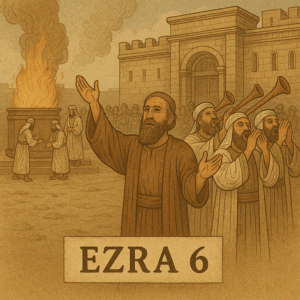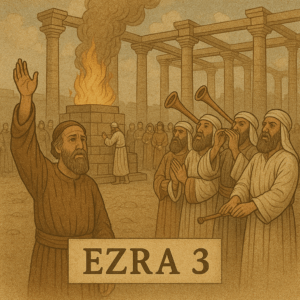Deuteronomy 27 is a chapter that focuses on the renewal of the covenant between God and the Israelites. Moses provides detailed instructions on how the Israelites should write the laws on stones, build an altar, and pronounce blessings and curses, emphasizing the importance of obedience to God’s commandments.
The context of Deuteronomy 27.
In Deuteronomy 27, Moses addresses the Israelites, preparing them for their entry into the Promised Land. He instructs them to write the laws on large stones and set them up on Mount Ebal. Additionally, Moses commands the Israelites to build an altar and offer sacrifices, signifying their commitment to the covenant. The chapter also outlines the blessings for obedience and curses for disobedience, reinforcing the consequences of their actions.
Key themes in Deuteronomy 27.
- Writing the laws on stones: Moses instructs the Israelites to write the laws on large stones coated with plaster. This act symbolizes the permanence and visibility of God’s commandments, ensuring that the laws are remembered and followed.
- Building an altar: The chapter includes instructions for building an altar on Mount Ebal. This altar is to be made of uncut stones, and the Israelites are to offer burnt offerings and fellowship offerings, symbolizing their dedication and worship of God.
- Blessings and curses: Moses outlines the blessings that will follow obedience to God’s laws and the curses that will result from disobedience. These pronouncements are meant to remind the Israelites of the consequences of their actions and the importance of adhering to God’s commandments.
- Renewal of the covenant: The entire ceremony of writing the laws, building the altar, and pronouncing blessings and curses signifies the renewal of the covenant between God and the Israelites. It reinforces their commitment to live according to God’s laws.
Lessons from Deuteronomy 27.
- Permanence of God’s laws: Writing the laws on stones signifies the permanence and unchanging nature of God’s commandments. It reminds us of the importance of keeping God’s laws at the forefront of our lives.
- Dedication to worship: Building an altar and offering sacrifices emphasizes the importance of worship and dedication to God. These acts of worship reinforce our commitment to the covenant with God.
- Consequences of actions: The blessings and curses highlight the consequences of our actions. Obedience to God’s commandments brings blessings, while disobedience results in curses. This reinforces the importance of living according to God’s will.
- Covenant renewal: The ceremony of covenant renewal reminds us of the need to continually reaffirm our commitment to God. Regularly renewing our covenant with God helps us stay faithful and dedicated to His commandments.
Conclusion.
Deuteronomy 27 provides essential instructions for the renewal of the covenant between God and the Israelites. As we reflect on this chapter, we are reminded of the importance of keeping God’s laws, dedicating ourselves to worship, understanding the consequences of our actions, and regularly renewing our commitment to God. By following these principles, we can live a life that honors God and upholds His commandments.




